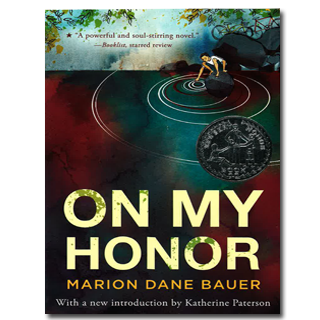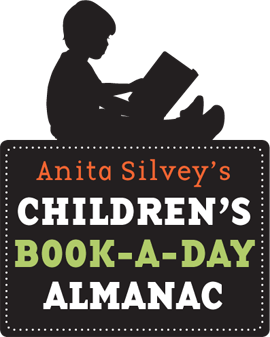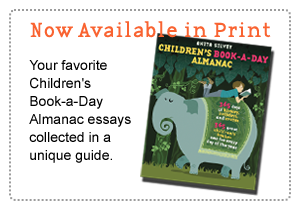
A FEW OTHER EVENTS FOR
NOVEMBER 20:
- It’s the birth date of Peregrine White (1620–1704) the first English child born in what the Pilgrims considered the New World.
- In 1820, an eighty-ton sperm whale attacked the whaling ship Essex in 1820 inspiring the book Moby-Dick by Herman Melville.
- No way, it’s Absurdity Day! Read Gooney Bird is So Absurd by Lois Lowry.
- Universal Children’s Day is the anniversary of the United Nations Assembly’s Rights of the Child Declaration (1959) and Convention (1989). Read For Every Child by Unicef, adapted by Caroline Castle and illustrated by John Birmingham.
Today marks the seventy-fifth birthday of one of the loveliest ladies in the children’s book field, Marion Dane Bauer. I first met Marion, who has lived in Minneapolis most of her life, in Hattiesburg, Mississippi, at Hattiesburg’s fabulous book festival. I already knew I loved her work; but after meeting Marion, I realized that the gentle and perceptive voice that comes through her fiction arises from her own wisdom about life.
Among her diverse canon, which ranges from preschool through adolescent titles, Marion has created one of the best books on writing for young people, What’s Your Story, and a groundbreaking group of short stories called Am I Blue? on gay and lesbian themes. But of all her books, the one I reread the most is an incredibly powerful volume of ninety pages, On Your Honor. Perfect for grades three through five, this novel explores difficult issues and does not provide pat answers.
Twelve-year-old Joel and his friend Tony set out for a bike ride to the bluffs beyond town, although Joel doesn’t want to go there. He appeals to his cautious and conservative father, hoping to be turned down, but is instead given permission. Stalling by the river because he does not want to ride farther, Joel dares Tony to a swim in the treacherous waters. But Tony cannot swim, and disappears into the currents.
Unable to find Tony, Joel then struggles with the appropriate course of action. Rather than letting anyone know what has happened, he pretends that he returned early and that Tony continued to ride out of town. Bauer builds the tension of each section so well. Joel’s actions seem totally believable, and yet, of course, totally wrong. In the end, when the true story finally emerges, both Joel and his father are left to deal with the choices they made that fateful day.
Marion does not sugarcoat any of this story. When Joel asks his father if Tony is in heaven, Joel gets this response: “If there is a heaven, I am sure Tony’s gone there.” Although this line has angered some would-be censors, it helps ground the final chapter, leaving Joel with a hollow place inside him that may never be filled.
Rarely does fiction for young readers deal with ethical issues; rarely is it ever so finely executed as in On Your Honor. Published in 1986 and the winner of a Newbery Honor, the book continues to be used in book discussion groups and classrooms because it raises so many important concerns. For more than a quarter of a century, On My Honor has allowed children to contemplate and discuss what might happen if they made a terrible mistake they could not fix.
Happy birthday Marion—from me and all your devoted readers.
Here’s a section from On My Honor:
Soon the bike was going faster than he could pump, so he had to let it coast. Still it gathered speech, He tried, once, to glance over his shoulder to see how close behind Tony was following. His front wheel wobbled dangerously when he turned his head, though, so he kept his eyes forward, concentrating on keeping the wheel still. His tires buzzed against the smooth blacktop, and the wind swept through his hair, holding it back from his face as if by strong fingers. It forced his eyelids open and made his eyes feel dry and crackly.
Originally posted November 20, 2013. Updated for 2024.













Sylvia,
Again you highlight a favorite book of mine! I often gave it to my middle elementary children who were sometimes considered weaker readers. The story gets them right from the beginning when Joel is confronted with a decision he doesn’t want to make and asks his Dad, thinking and hoping his Dad will say “No”. When his Dad doesn’t, the tension begins to grow. Realistic and true to the heart, Bauer brings the reader into the conflict where they, too, must decide what is the right thing to do. Thanks for highlighting this “winner”!